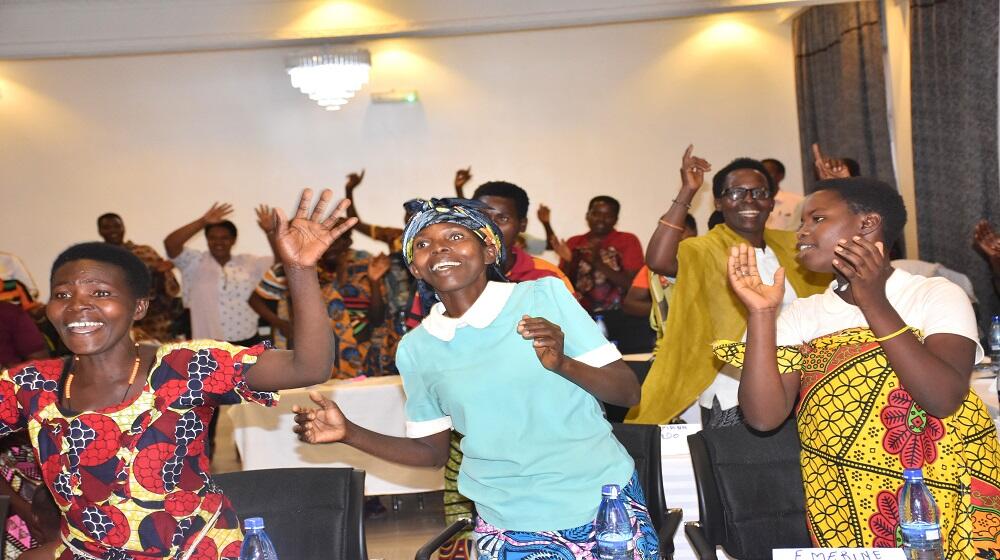Forced to drop out of school at 13, she married at 17, became pregnant and suffered obstetric fistula after giving birth. Annonciate Nshimirimana lived in shame and isolation for 10 years. Before she could find a cure, her mother suggested she visit a witchdoctor. He gave her things to swallow, but to no avail, she continued to have an uncontrollable urinary incontinence.
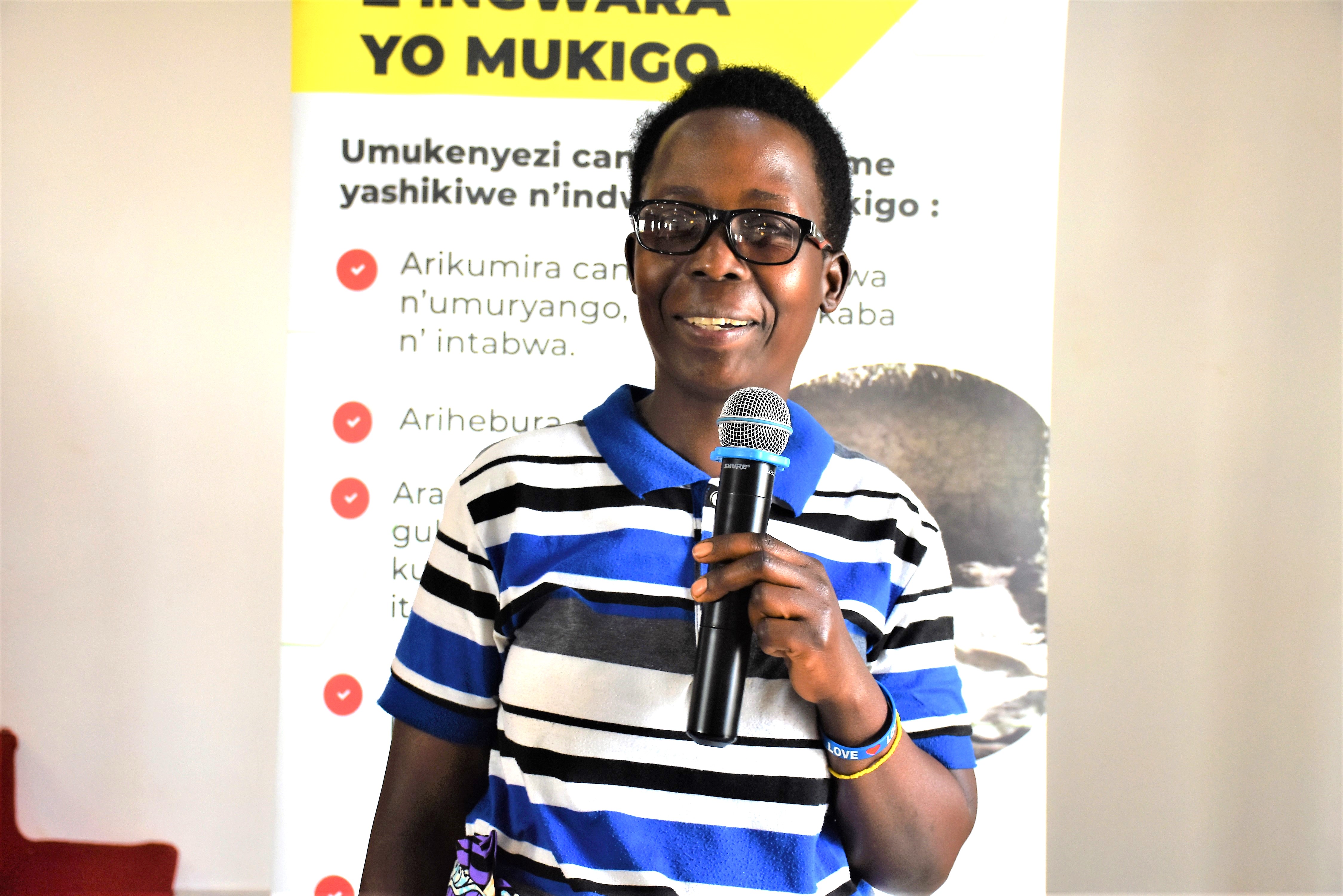
Annonciate is one of those women who dare to talk about it. They are breaking the taboo and revealing the ordeal they went through while suffering from obstetric fistula. "I used to be able to get dressed up well to go to church, because I like to pray. But once I got there, I'd go back straight home, because every time I'd realize that on my way to the church I'd already dirtied my clothes. Oh what a shame,"Annonciate, covering her face just imagining the humiliation she had experienced. 10 years later Annonciate learns that she has not been cursed, but in fact suffers from a treatable and curable disease. She hears this on the radio and can only rejoice. Now healthy, she is more than grateful.
"I got pregnant when I was 20 and during my contractions my mother-in-law and my own mother refused to let me go to the health center to give birth, to the point where I felt that death was approaching," shares Gloriose Mbonimpa. She says she had to shout loudly to the neighbors for help, as her mother and mother-in-law were telling her to stop whining, as they too had given birth at home. The neighbors rushed to her aid to take her to the health center on a traditional stretcher, but were unable to do so because she gave birth on the way. As a result, she developed obstetric fistula.
Humiliated to the point of lying about the symptoms...
Abandoned by her husband for 4 years, Gloriose suffers alone, at home, humiliated, in extreme poverty and wanting to die. Deciding to go for treatment, she can't be sincere: "How can I admit at my age that I have incontinence? A woman is supposed to be the model of cleanliness, and I was giving off unbearable odors and leaving dirt everywhere. Nobody deserves to go through that. So I decided to lie to the healthcare provider that I was suffering from diarrhea."
Gloriose has lived with this humiliation and isolation for 20 years. Since 2002, it wasn't until 2022 that she was able to seek treatment thanks to a campaign launched by UNFPA Burundi in partnership with the Ministry of Public Health and AIDS Control.
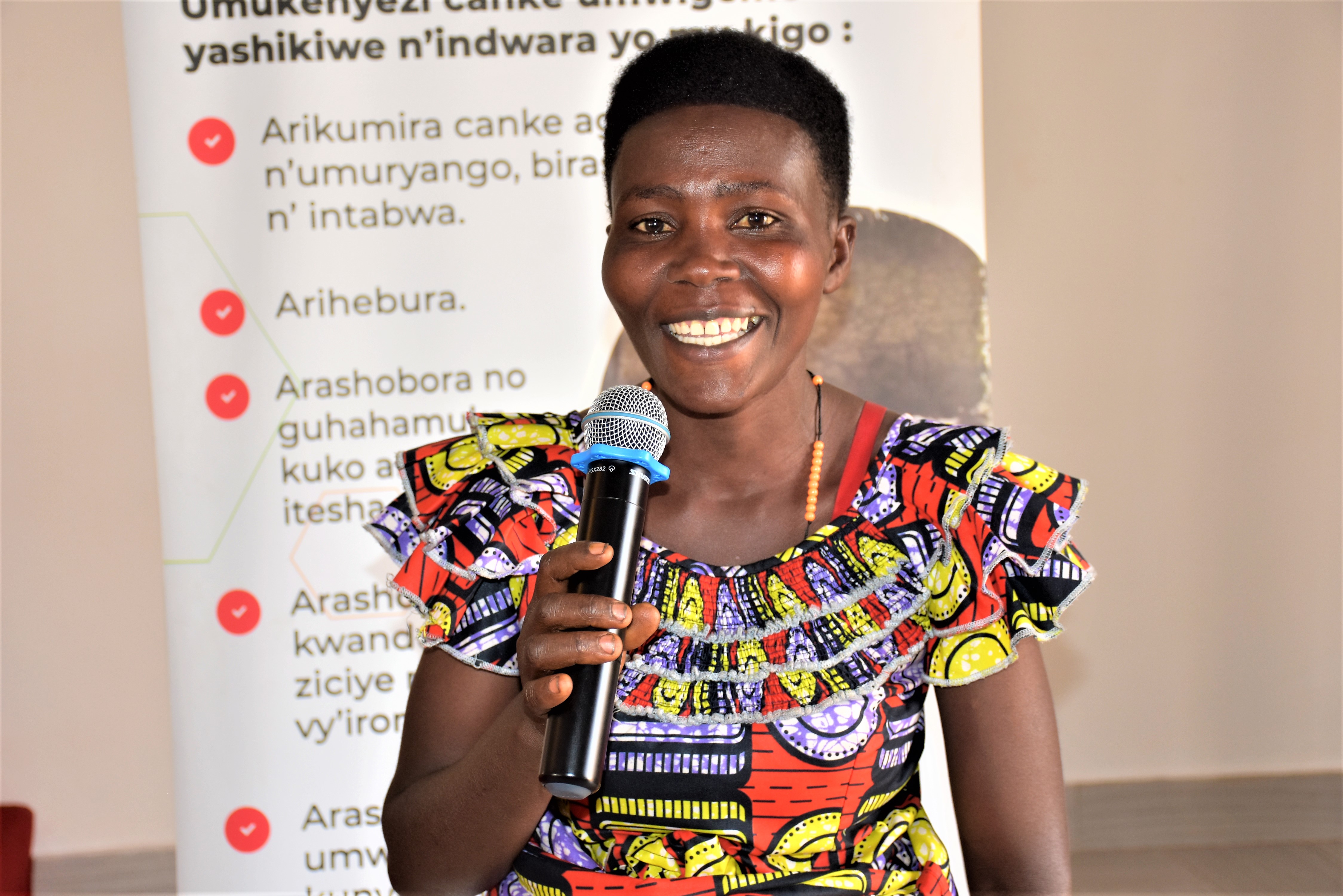
Beautiful and smiling, Gloriose has made the promise of her life: of the 20 years she has suffered from this disease, she swears that she will do everything to raise awareness of obstetric fistula so that no other woman or girl in her community goes through the same ordeal.
One after another, these women speak out, telling each other that being able to talk about it is a therapy they still needed. Donavine Ndayikengurukiye, now 23, suffered from obstetric fistula when she was 19. "I gave birth to a stillborn baby and 2 weeks later I had obstetric fistula. Children booed me in the street because I stank, and women in the maternity ward asked to have me isolated because I stank and wet the bed. On top of the grief of losing my baby, I didn't understand what was happening to me". Donavine shares that she had a nickname that stabbed her in the heart: "the woman who wets the bed".
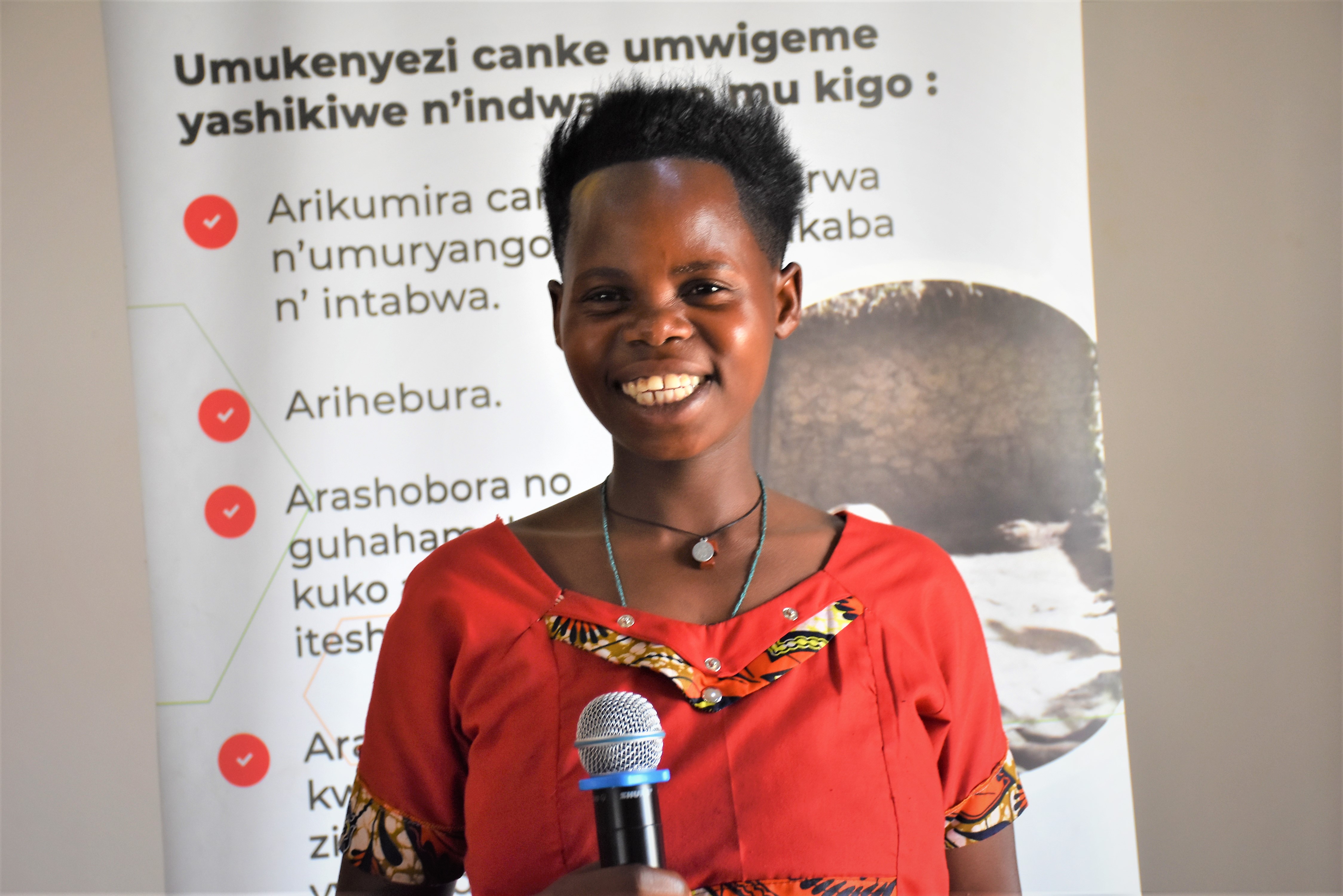
Donavine Ndayikengurukiye shares she was recomforted when she went to the urumuri center, the only center in Burundi that treats obstetric fistula. She was reassured to meet others in the same condition and, above all, others who had already recovered and were waiting to go back home. "Learning that I had the chance to recover was the best news of my life," shares Donavine with a broad smile.
I decided to support my wife and was excluded...
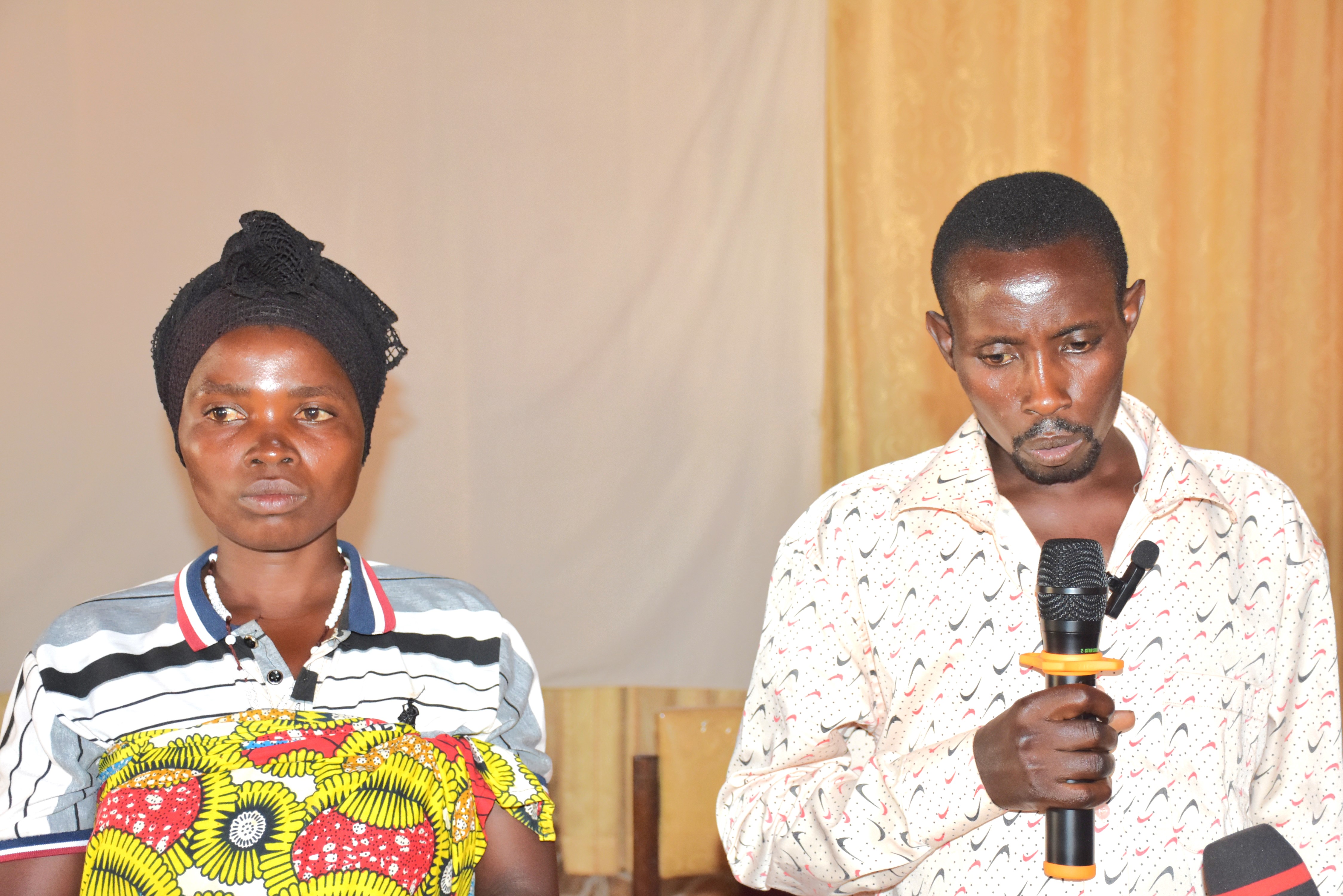
Little as they are, some men decide to support their wives suffering from obstetric fistula. Like Olivier Miburo, who was called "stupid" for accompanying his wife in this process and supporting her instead of looking for another wife. Just thinking about it brings tears to his eyes: "Everyone in the neighborhood said I didn't have a wife any more. Everyone told me that I had to abandon her to find another wife, but I always refused and was called stupid by my friends and the whole neighborhood. No one would even say hello to me," he says. In this very difficult situation, Olivier Miburo had to do all the household chores himself, and was forced to sell the family's only arable land to meet all the family's needs. "I had to sell the only land we had because not only could I no longer farm on my own, but it was also to get a bit of money to support the family. All my friends and neighbors used to tease me, telling me that I'd only got what I deserved, because I refused to look for another wife". After his wife Jeanine's recovery, he thought the situation would improve, but instead it got worse, as his wife was called worthless and disabled by everyone. "Can you imagine that I was excluded from our group for income-generating activities? I've been refused any loan, saying I'm like a widower who couldn't pay it back? Calling me a widower when my wife is still alive. It's terrible how cruel people can be," concludes Olivier Miburo. He was quick to point out that his wife was still so frail that she couldn't go back to farming, and that they didn't even have any land. He was delighted that UNFPA had thought of them.
A glimmer of hope...
As Olivier Miburo so aptly put it, UNFPA has indeed thought of them. In partnership with the Ministry of Public Health through its reproductive health program, UNFPA Burundi met with these women who had recovered from obstetric fistula, not only to listen to them, but also to sensitize them to become ambassadors in the fight against obstetric fistula in Burundi. It was also an opportunity to talk to the women about their various income-generating activities. As most of them have lived in isolation for several years, another session was organized to train these women survivors of obstetric fistula in the management of income-generating activities for their successful socio-economic reintegration. They also proposed to form a network of obstetric fistula survivors, a good channel for exchanging experiences and mutual support. A follow-up committee at communal level will be set up to facilitate the supervision of beneficiaries. A "solidarity chain" commitment contract will be signed by each beneficiary to guarantee continuity in the development of income-generating activities by other beneficiaries. Membership of community-based associations is also a strategy to be promoted, to provide opportunities for support to the most disadvantaged, as well as for exchanges with other people on the various challenges facing their community.
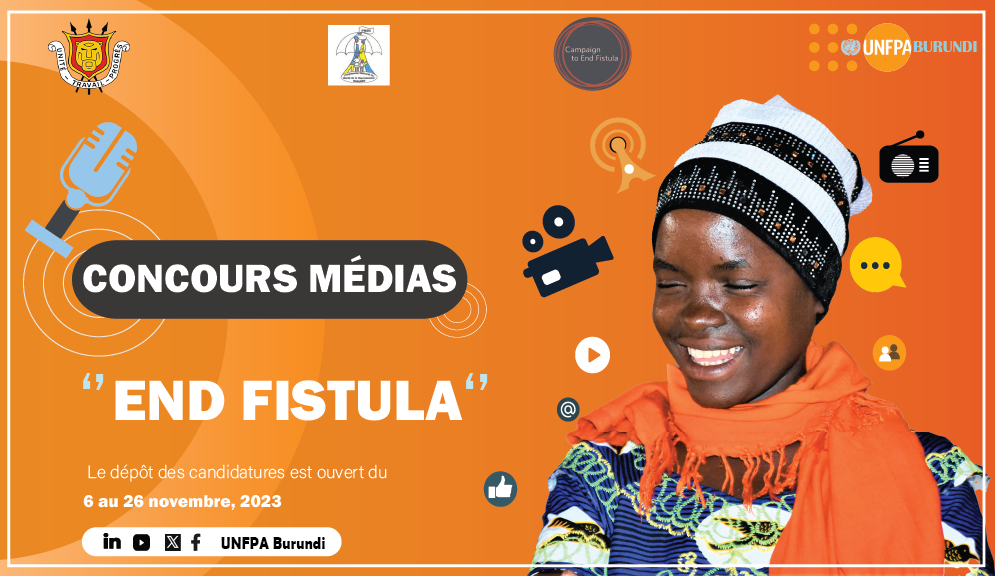
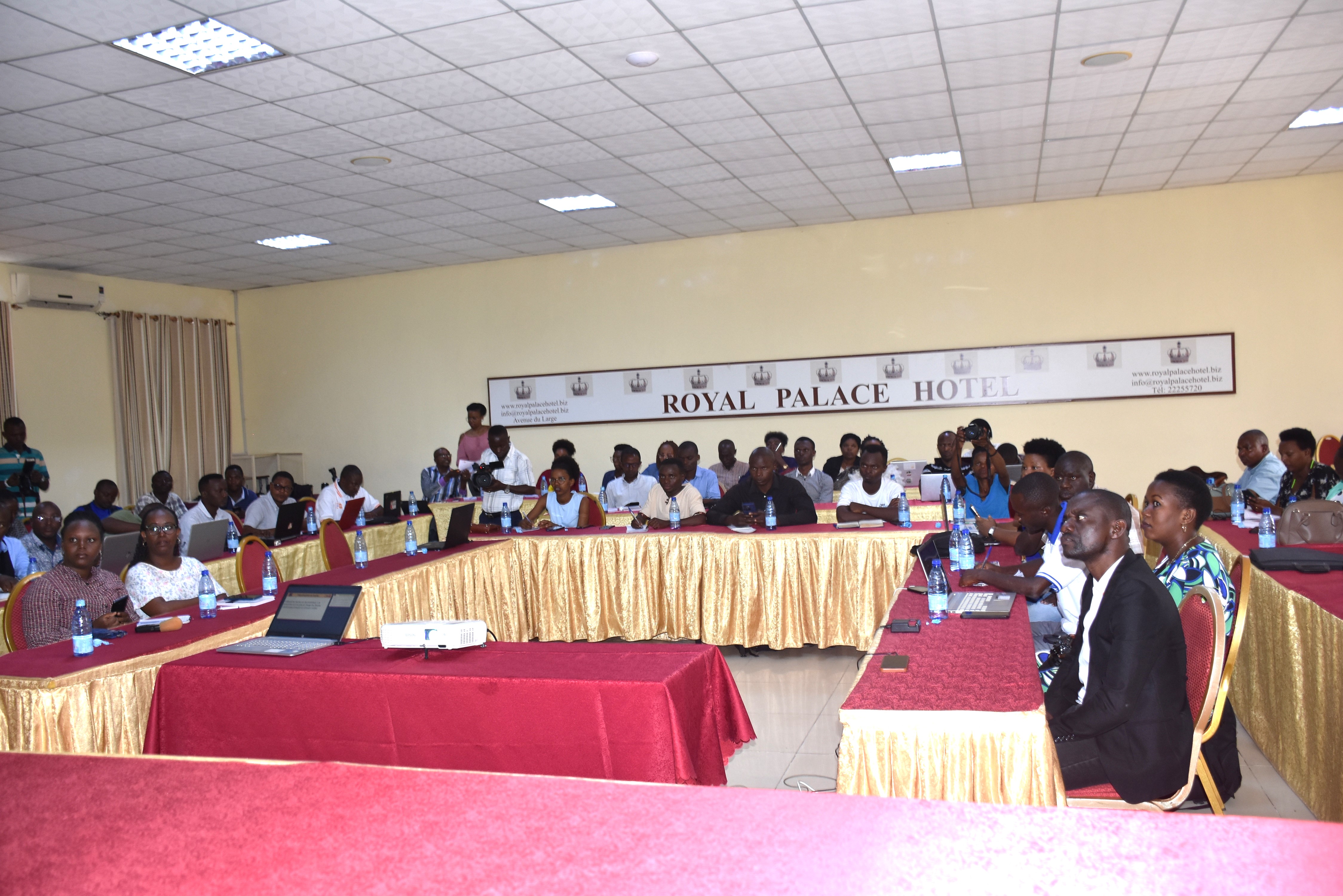
Putting an end to obstetric fistula in Burundi, and combating all kinds of rumours and discrimination against women suffering from the condition, could not be achieved without the effective contribution of the media, right down to community level. A media competition entitled "End Fistula" was launched in the presence of 70 journalists from all over the country. The aim is to encourage journalists to take a greater interest in the fight against obstetric fistula, through awareness-raising, advocacy, correct information and the banning of rumors. The competition winners will be announced on Monday December 04, 2023.
You will know that in Burundi, from 2010 to June 2023, over 3,000 women with obstetric fistulas received surgical treatment at the Urumuri Center of the Gitega Regional Hospital, with an estimated cure rate of 92.6%.
By Queen Belle Monique Nyeniteka

